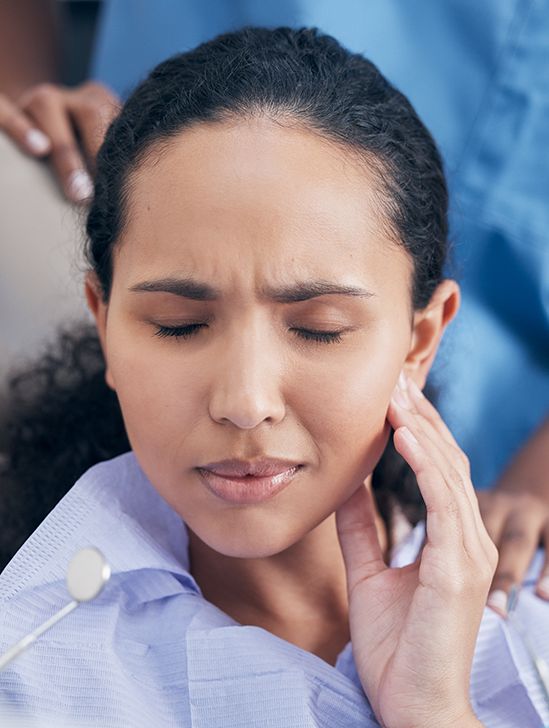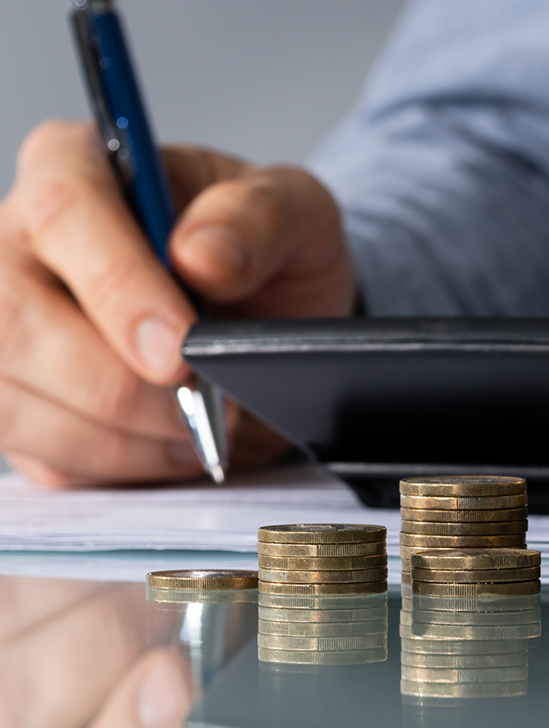Emergency Dentistry State College
Fast, Reliable Care When You Need Us Most

Dental emergencies tend to happen at the very worst times. You’re playing a game with your friends, and suddenly something flies and hits you in the face, causing damage to your teeth. Or, you wake up one day and that minor toothache has now turned into searing pain. In either situation, you want relief fast, so call us at Centre Smiles right away. With decades of experience and the latest advanced technology, our team will always be there to offer advice, first-aid tips, and even same-day urgent care if needed. When you or a loved one is in pain, you can count on high-quality care when you need it most!
Why Choose Centre Smiles for Emergency Dentistry?
- Decades of Experience with Dental Emergencies
- Prompt Relief When You Need It Most
- Multiple Financing Options
How to Handle a Dental Emergency

- Schedule your emergency appointment. If you ever find yourself needing urgent dental care, don’t hesitate to give us a call. We’ll schedule you at your earliest convenience! In the meantime, an experienced team member will provide first-aid tips over the phone to hold you over until you get to us.
- Have an examination. As soon as you arrive, Dr. Starostik will examine your mouth to identify what’s troubling you. He will also provide relief if you’re experiencing severe discomfort.
- Discuss the situation. Following your examination, Dr. Starostik will explain his findings and recommend a treatment plan. It will include an estimated cost and timeline.
- Get the care you need. Dr. Starostik can perform multiple services if needed to get your smile back on the right track. You might have to return to the office for these treatments, which include fillings, dental crowns, root canal therapy, and extractions.
The Most Common Dental Emergencies
There are two main categories of dental emergencies: injuries and accidents, or ongoing dental problems that suddenly get worse. Fortunately, we have plenty of experience handling both. After you’ve called us to schedule the first available appointment, review the tips below on how to handle common emergencies until we can see you.
Understanding the Cost of Dental Emergencies

The cost of emergency treatment can be very different from person to person. Sometimes nothing more than a simple dental filling is needed, while other situations require more involved treatment like a root canal or crown.
After we’ve gotten you out of pain and assessed your needs, we’ll explain our recommendations and create a treatment plan. At that point, we can also give you a cost estimate. If possible, we’ll give you multiple treatment options so that you can make the right choice for your circumstances. Finally, we’ll discuss either insurance or financing with CareCredit as necessary.
Hopefully, you never need emergency dental care, but if you’re in State College, you can be sure that we’ve got you covered. If you’re in pain, don’t hesitate to give us a call !
How to Prevent Dental Emergencies

It’s impossible to prevent every emergency, but here are some tips for minimizing your risk:
- Schedule regular checkups so we can find and treat problems when they’re small.
- Wear custom-made athletic guards or nightguards as needed.
- Practice good oral hygiene to prevent cavities and gum disease.
-
Don’t chew on ice, pens, hard candies, etc. and avoid opening packages with your teeth.
Dental Emergency FAQs
Can I wait to see my dentist?
No one has time for an unexpected dental problem. It’s tempting to wait to see your dentist until you have more flexibility in your schedule, but that could cost you your tooth. Even if your pain subsides or the issue doesn’t seem too concerning, it’s always best to see your dentist as soon as possible. If you wait too long, the underlying problem can progress in severity, which might lead to the eventual loss of your tooth. We understand your time is valuable. We’ll get you into the dental office quickly and create the personalized treatment plan you need to restore your smile, so you can get back to your day.
Should I have my tooth extracted?
Removing a problematic tooth may seem like the simple answer, but it will cause more issues down the road. Every tooth is essential to your oral health and function. Even when just one tooth is missing, it significantly increases your risk of several new dental problems, like cavities, gum disease, and additional tooth loss. You’ll need to invest in a prosthetic tooth to rebuild a healthy, functional smile, which can be costly long-term. It’s always best to save your tooth whenever possible.
Should I go to the hospital instead of my dentist?
Most hospitals aren’t equipped to handle dental emergencies. They cannot treat the root cause of the problem; therefore, it’s always best to see your dentist in most instances. If you have another injury, suspect your jaw is broken, or have a medical issue, go to your local emergency room first. We will be here for you after you’ve been treated.
How much will an emergency visit cost?
There isn’t a set cost for emergency dentistry because the amount is determined by your specific treatment plan. We provide you with a custom estimate during your consultation and discuss the costs associated with it. We will take the time to discuss your payment options, like using CareCredit, so you can get the treatment you need without breaking the bank.
Will my dental insurance cover an emergency visit?
Every dental insurance policy is different, but most companies cover at least 1 emergency visit per year. You can use your insurance benefits to reduce the amount you need to pay out-of-pocket for any treatments. We will work on your behalf with your insurance carrier to file the necessary claims and paperwork to keep our services affordable, so you have one less thing to worry about.
I Need a Checkup & Cleaning I am Worried About Gum Disease I Have a Cavity or Broken Tooth I am Missing One or More Teeth I Want to Enhance My Smile I Have Jaw Pain I am Worried About Sleep Apnea Myofunctional Therapy View Our Services
